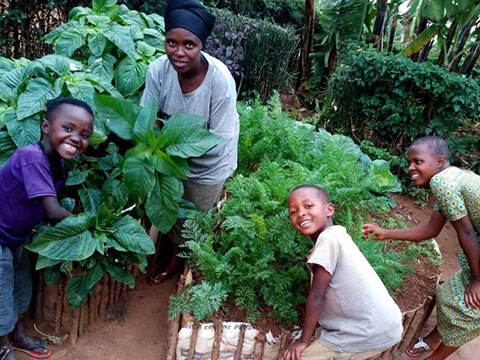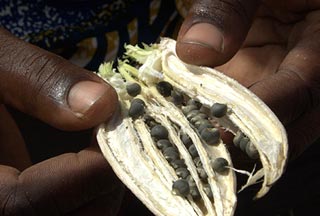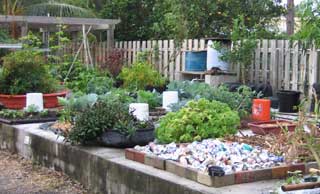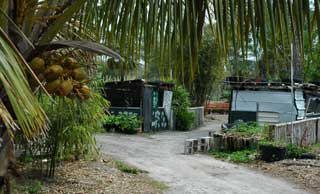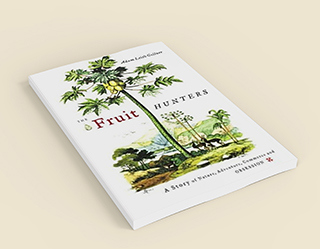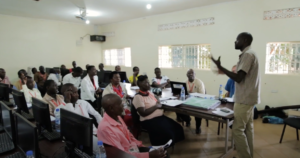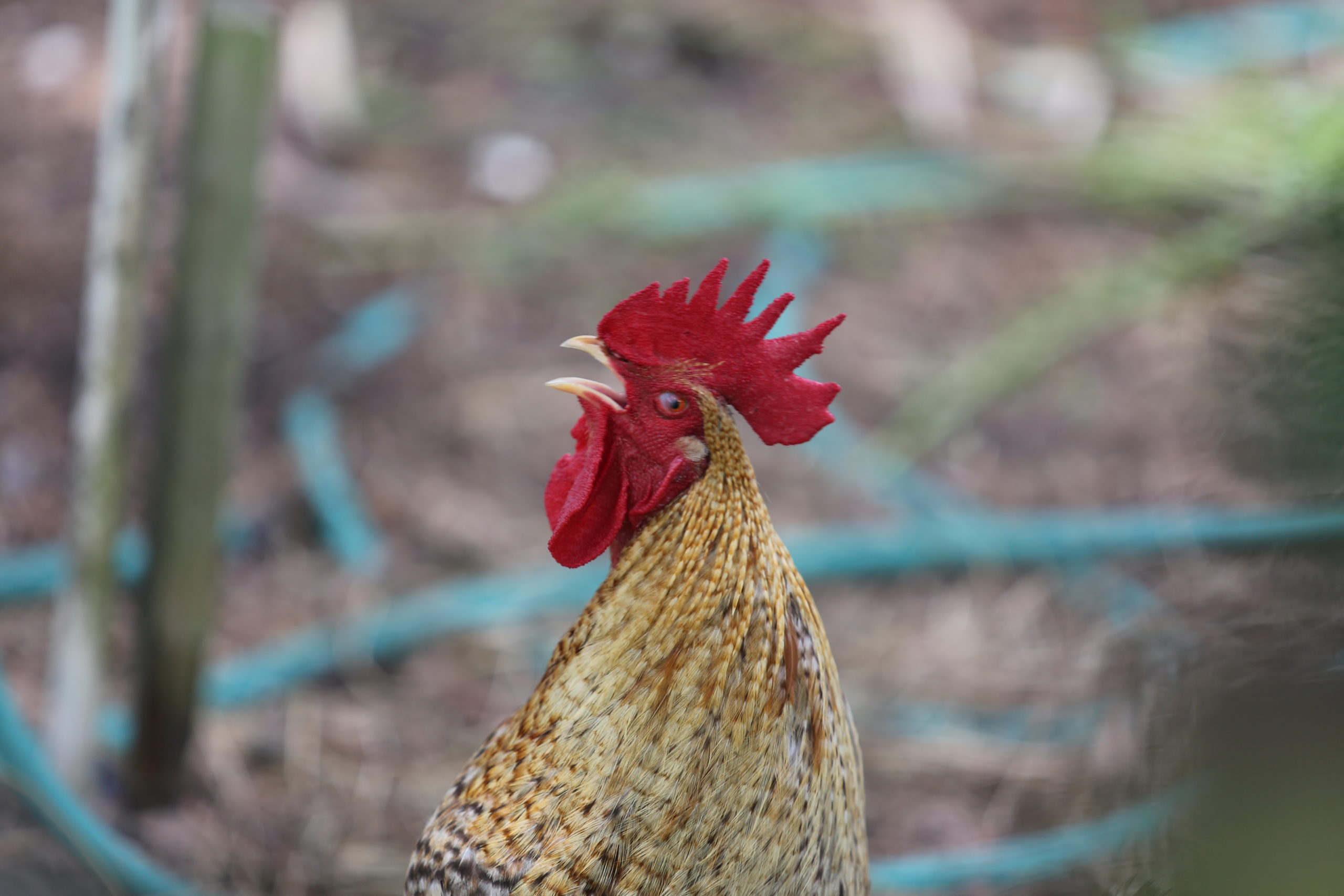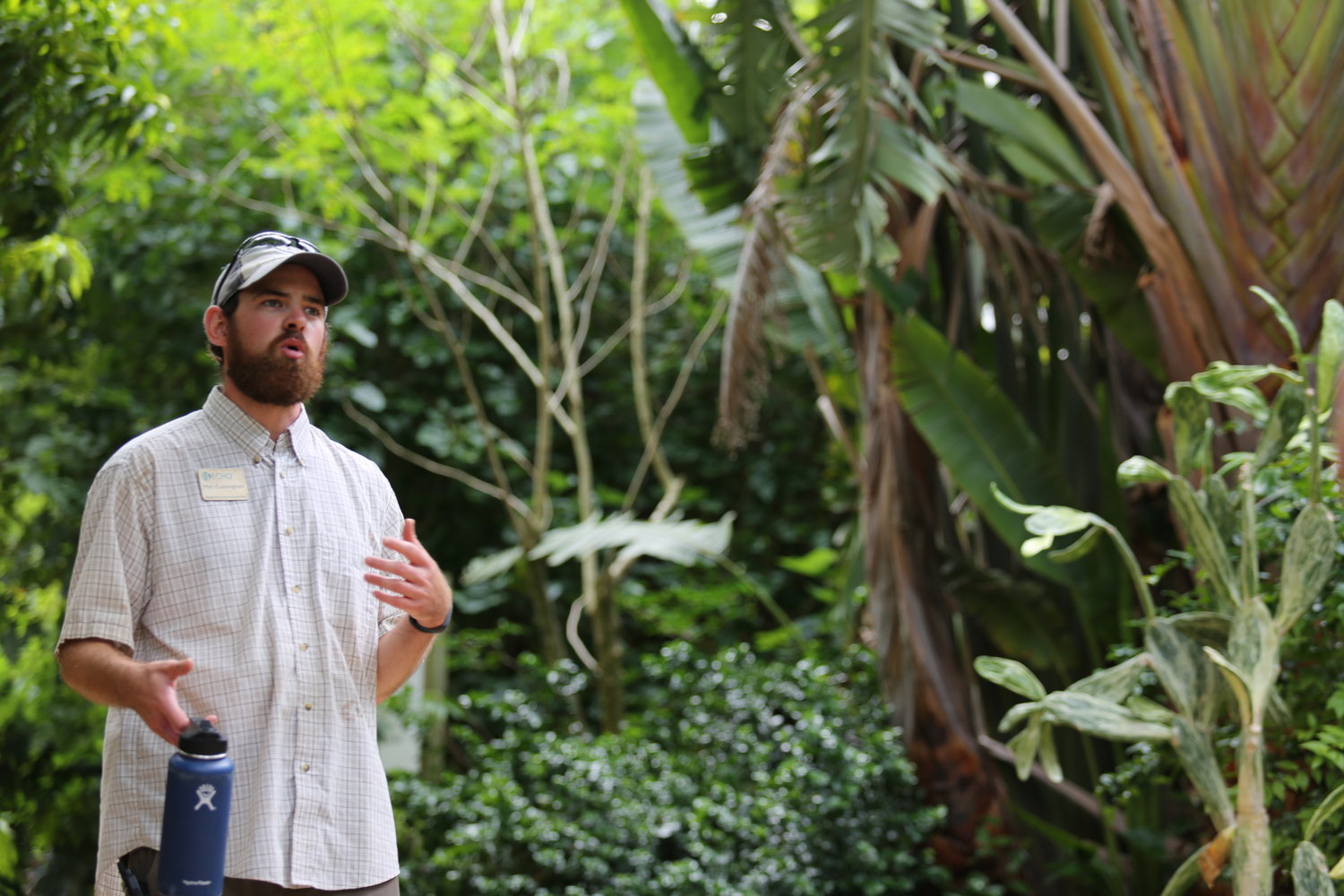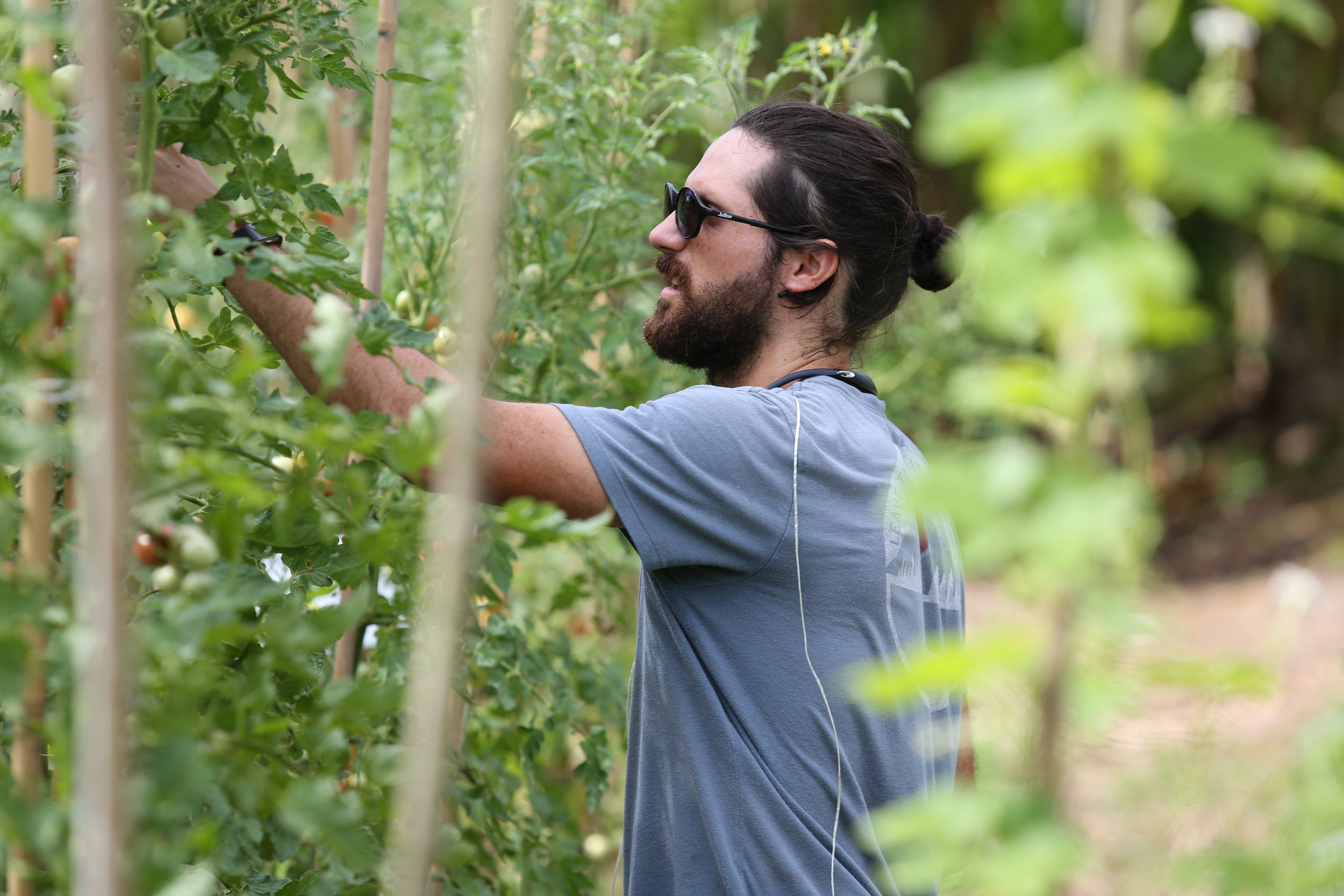“There are abundant reasons to care about hunger and malnutrition around the world. The Bible commands it, our humanity demands it. For us, it’s a profound privilege.”
A Look Inside an ECHO Tour
By Zach Walker
The leaves tasted like mashed peas and the berries like cotton candy. Even the little girl who kept begging to be picked up by her mom scurried around the tour guide to get a taste.
The college student asked questions about planting procedures while the missionary took pictures of an outhouse and then used it. The girl with mud in her sandals talked to the pigs.
ECHO offers summer tours of its global farm three times every week. Guests arrive at 9:30 on Tuesday, Friday, or Saturday to learn about the tropical produce, agriculture practices, and mission of equipping the world with knowledge through two-hours of walking. Tours are also offered December through April on a more frequent basis.
Four fans whirled in tandem to offer air-conditioned comfort before the group ventured into the forest. Lines of plastic chairs faced a projector screen while Matt Cunningham, the tour guide, welcomed each new guest.
With a tap of his laptop trackpad, Matt introduced the group to ECHO’s global mission through a video that began showing the impacts of international research and training.
The screen projected animations of ECHO’s process with simple cartoon farmers and visual aides representing global impact.
A family from Tanzania was shown as an example of sustainable farming practices such as sack gardens and biogas stoves. To conclude, ECHO CEO David Erickson appeared on screen to speak about the mission.
“There are abundant reasons to care about hunger and malnutrition around the world,” Erickson said. “The Bible commands it, our humanity demands it. For us, it’s a profound privilege.”
Matt Cunningham explains the reasons behind ECHO’s mission to his tour group. ECHO serves an average of 167 countries every month by equipping farmers with knowledge of sustainable agriculture practices.
Matt led the way swinging his 32 oz. metal water bottle around his fingers. The group crossed the road and entered a different world. A world of chirping cicadas and mango trees. Of rainforests and mountains and humid lowlands.
A mango hangs from a tree near the start of the tour path. Mango trees are plentiful at ECHO and line many paths on the farm.
The group halted whenever a large white sign came into focus. Each one announced a reason as to why ECHO’s mission matters.
“75% of the world’s food is generated from only 12 plants and 5 animals species,” one sign read.
“There are close to one billion people living in hunger the world world today.”
“A child dies from hunger-related causes every 12 seconds.”
Guests asked Matt to identify fruits and explain why that papaya didn’t look like the papayas in their backyard. The little girl pointed at the tree while her mom smiled and listened.
Banana trees and palm fronds passed on each side of the dirt path as the group traveled to the hot humid lowlands. One of seven distinct environments on the ECHO campus, the lowlands mimics the agricultural conditions of humid countries like Thailand and the Philippines.
Billy Arthur, the lowlands intern, trims tomato plants near the tropical highlands mountain. The seven sections of the farm border each other but mimic each environment individually.
Matt pointed to a rice paddy cultivated using the system of rice intensification, or SRI. A bamboo shack stood in the trees to the right.
The path snaked through a field lined with pineapples where an intern was clipping tomato plants. Matt reached up toward his favorite plant on the farm, the caimito tree. The golden undersides of the leaves shimmered in the afternoon sun.
A man-made mountain towered over the group, the cornerstone of the tropical highlands area built to match the conditions of the sloped farms found in hilly countries like Lesotho and Honduras. A woman snapped close-up iPhone photos of the same leaves and stems used by highland farmers to stay alive.
Hawken Sawyer, the semi-arid intern, mixes cow manure with water to create biogas. The gas is then fed underground to a burner where tour guests can observe the resulting flame, a demonstration of biogas utility in villages across the world.
An intern pulled a wooden rod caked with liquid manure from a plastic drum. He explained the process of making biogas, a renewable fuel made from animal waste and water that can provide heating needs to low-income families in Africa. Matt lit a burner and produced a hot blue flame fueled solely by biogas.
Goat bleats and pig snorts accompanied the slight smell of manure in the air as the group departed the biogas area and approached the urban gardens, Matt’s speciality, which are designed to test plant performance in areas without open farmland. Rabbits chewed on banana leaves while plants sprouted from tires and kiddie pools. Green stems and colorful flowers contrasted with concrete.
After the urban gardens, Matt walked toward the end of the tour. A few more edible plant samples and explanations of the work being done overseas were given before reaching the final destination.
One more sign stood within a riot of branches and leaves. Two children forever smiling on the white plastic beside the words “Do You See What’s Possible?”. Matt encouraged the mother and child and the sandal girl and the missionary and the rest of the group to become part of ECHO’s efforts by volunteering or giving financially. Heads nodded and smiles spread.
“Thank you all,” Matt said. “Have a great rest of your day.”
You, too, can be part of ECHO’s mission of empowering the world with knowledge and escaping the grips of hunger. Sign up for our monthly newsletter, make a financial contribution, or simply learn more through our website. We hope you consider coming along for the journey.
__
ECHO provides sustainable options to world hunger through agricultural training, innovative options, and networking with community leaders and missionaries in 180 countries and online through ECHOcommunity.org. ECHO seeks to find agricultural solutions for families growing food under difficult conditions. ECHO’s international headquarters is located in Fort Myers, FL. Visit echonet.org
